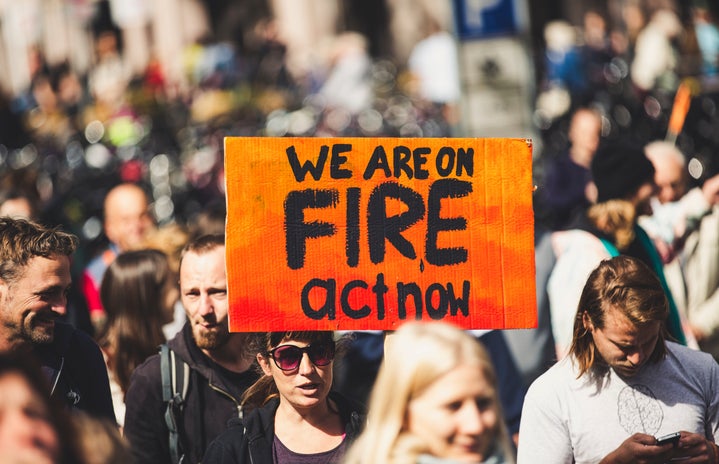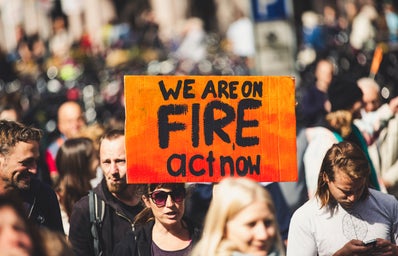The west coast is up in flames. Since 2018, California has experienced 2 record-breaking years for wildfires, destroying millions of acres of land and counting. The fires are only spreading. Oregon’s orange and smokey sky has been appearing across the news in past weeks, and Washington is feeling the burn as well. With 3 states on fire and hundreds of thousands of people evacuating and losing their homes for yet another year, why are we still looking at the situation with the wrong perspective?
On September 9th, I was scrolling through TikTok when a video came up, boasting roughly 2.5 million views within the past day or so. The video showed what it looked like to walk outside of a building in Oregon last week. The entire sky radiated a bright orange-red color that made everything in sight a similar hue. “It looks so bad,” the TikTok maker stated before coughing intensely.
My first instinct was to check the comment section of the video to see what the general TikTok public had to say. I had to scroll past the top 15 comments before someone expressed concern about the situation and the top 28 comments before someone mentioned the wildfires. The top comments at the time included describing the sky as “pumpkin spice air” or joking that the TikTok maker is “living on Mars.”
The fact of the matter is that this is not some faraway place. This is not a filter or a glitch. This is not even all that new.
Social media is all about quick news, but the problem is that our reaction is just as quick as our consumption. In the case of TikTok (albeit not a great source of news but still where approximately 80 million U.S. users consume content every month), all videos are a minute long or less. As a result, the mindset revolves around a short attention span. Nothing should take more than a few moments of my time, and if it does, it is not worth keeping up with.
This mindset is what drives American focus into the ground and keeps us from looking at the wildfires in a broader perspective.
The California wildfires have been a major catastrophe for the past few years, and yet media coverage does not have the attention span for something so drawn out. Every once in a while, I will hear some fleeting expression of empathy towards the people on the west coast, but after so long, it becomes a part of daily life, news stops covering it as intensely, and people stop mentioning it.
Because the topic is only relevant occasionally, when news decides to cover it, it is hard to remember that this is not just an isolated event. We cannot blame it on the year of 2020 because this is not a one-year situation, as we have seen over the past couple. A short attention span that is nurtured by the social media we are on every day is causing the bigger picture, the real root of the problem, to be ignored.
The fact of the matter is that this is climate change at work. California’s abundance of dry vegetation combined with the increasing average temperatures are the perfect formula for increasing wildfires. However, between ABC, NBS, and CBS, less than 4 percent of their collective national broadcast segments about the wildfires mentioned a link to climate change.
The problem is that it is easier to blame teenagers who set off fireworks in Oregon and couples whose gender reveal parties go wrong in California because they are more visible than climate change. They are a scapegoat for the long-term problem. It is a lot easier to blame a couple individuals than to recognize our country, our communities, and ourselves as contributors to the global warming that fuels these wildfires.



